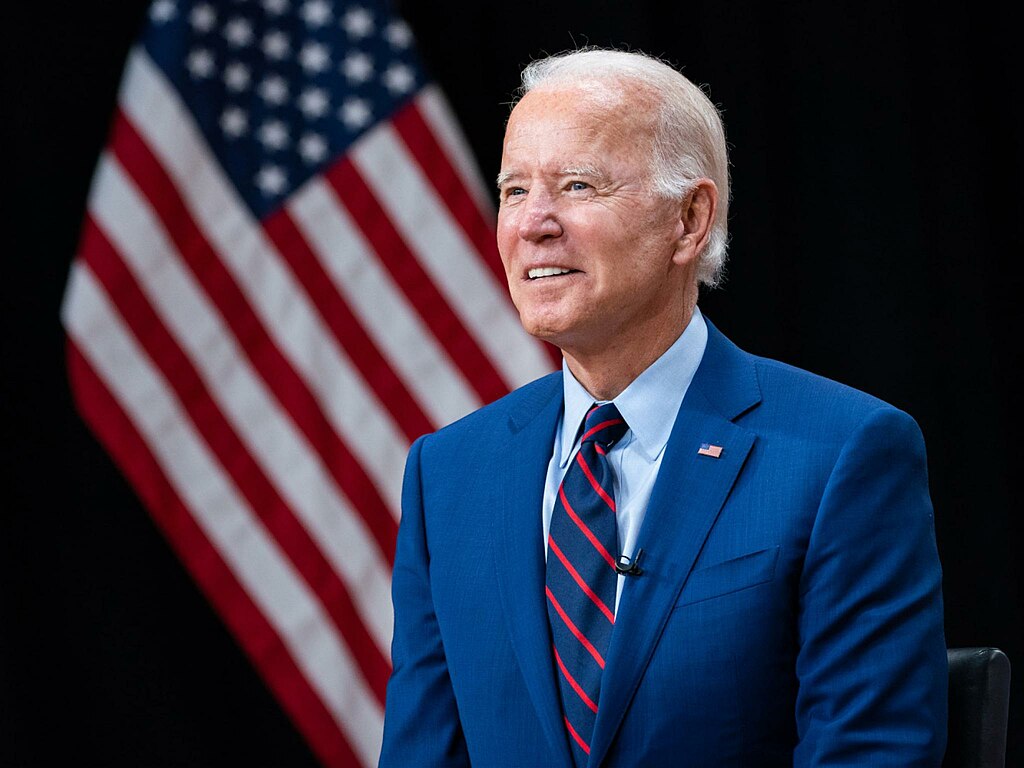President Joe Biden announced a $1 billion aid package aimed at assisting African nations rebuild homes and infrastructure devastated by natural disasters. This sweeping commitment comes as part of a broader effort to address climate resilience in vulnerable regions, but the decision has ignited fierce debate among critics questioning the allocation of U.S. resources abroad.
The announcement, made during a White House briefing on global disaster relief efforts, underscores the administration's continued focus on combating the effects of climate change in developing nations. According to Biden, the funds will be used to rebuild housing, repair infrastructure, and bolster local economies ravaged by floods, droughts, and other climate-related disasters.
Rebuilding Communities Across Africa
The $1 billion initiative will prioritize regions most affected by recent natural disasters, including parts of East and West Africa. These areas have faced catastrophic flooding, prolonged droughts, and cyclones, leaving millions displaced and critical infrastructure in ruins. The funding will support efforts to reconstruct homes, establish resilient housing standards, and restore essential public services.
Biden emphasized the humanitarian need behind the aid package, stating that such support is vital to ensuring stability in affected regions. Humanitarian organizations have praised the move, citing the devastating toll climate change has taken on Africa's vulnerable populations.
However, some lawmakers and activists have expressed concerns about the initiative’s timing, arguing that similar investments should be directed toward U.S. communities grappling with their own crises. Critics point to ongoing struggles in regions hit by hurricanes and wildfires, where residents are still waiting for significant federal relief.
Critics Question Aid Priorities
Biden’s billion-dollar pledge has sparked outrage from detractors who argue that domestic challenges deserve greater attention. Social media erupted with criticism, with many users questioning the decision to send resources abroad while issues like homelessness and disaster recovery persist in the United States.
Republican lawmakers have also weighed in, calling for greater accountability in foreign aid spending. “While we understand the need for global solidarity, Americans expect their tax dollars to be used at home first,” one lawmaker stated in a press release.
Supporters of the initiative argue that climate change is a global crisis that requires a collaborative response. “By helping other nations, we’re not just providing aid—we’re investing in a more stable world,” a State Department official noted.
Netizens Share Mixed Reactions
The announcement has ignited a firestorm of debate on social media, with opinions divided:
- @AmericanFirst: “Our people in Florida are still recovering from last year’s hurricane. Biden’s priorities are backwards!”
- @ClimateWarrior: “Climate change doesn’t respect borders. Helping Africa is helping everyone in the long run.”
- @DisasterReliefAdvocate: “While I agree we need to help others, let’s not forget our own struggling communities.”
- @TaxpayerRant: “Another billion gone. How about fixing infrastructure here first, Joe?”
- @GlobalAidNow: “This is what leadership looks like. Kudos to Biden for stepping up for vulnerable nations.”
- @CynicalCitizen: “Can’t even fix the housing crisis at home, but there’s always money for other countries.”
Biden Faces Mounting Pressure Over Aid Strategy
As the debate rages on, Biden’s administration will likely face mounting pressure to justify the allocation of funds amid growing domestic needs. With the 2024 election season heating up, this decision could become a flashpoint in broader discussions about U.S. foreign aid and climate policy.



 U.S. Lawmakers Question Trump’s Iran Strategy After Joint U.S.-Israeli Strikes
U.S. Lawmakers Question Trump’s Iran Strategy After Joint U.S.-Israeli Strikes  Israel Declares State of Emergency as Iran Launches Missile Attacks
Israel Declares State of Emergency as Iran Launches Missile Attacks  AI is already creeping into election campaigns. NZ’s rules aren’t ready
AI is already creeping into election campaigns. NZ’s rules aren’t ready  Trump Warns Iran as Gulf Conflict Disrupts Oil Markets and Global Trade
Trump Warns Iran as Gulf Conflict Disrupts Oil Markets and Global Trade  Does international law still matter? The strike on the girls’ school in Iran shows why we need it
Does international law still matter? The strike on the girls’ school in Iran shows why we need it  Middle East Conflict Escalates After Khamenei’s Death as U.S., Israel and Iran Exchange Strikes
Middle East Conflict Escalates After Khamenei’s Death as U.S., Israel and Iran Exchange Strikes  Trump Says U.S. Attacks on Iran Will Continue, Warns of More American Casualties
Trump Says U.S. Attacks on Iran Will Continue, Warns of More American Casualties  Pentagon Leaders Monitor U.S. Iran Operation from Mar-a-Lago
Pentagon Leaders Monitor U.S. Iran Operation from Mar-a-Lago  Trump Announces U.S. Strikes on Iran Navy as Conflict Escalates
Trump Announces U.S. Strikes on Iran Navy as Conflict Escalates  U.S.-Israel Strike on Iran Escalates Middle East Conflict, Trump Claims Khamenei Killed
U.S.-Israel Strike on Iran Escalates Middle East Conflict, Trump Claims Khamenei Killed  Australia Rules Out Military Involvement in Iran Conflict as Middle East Tensions Escalate
Australia Rules Out Military Involvement in Iran Conflict as Middle East Tensions Escalate  Argentina Tax Reform 2026: President Javier Milei Pushes Lower Taxes and Structural Changes
Argentina Tax Reform 2026: President Javier Milei Pushes Lower Taxes and Structural Changes  HHS Adds New Members to Vaccine Advisory Panel Amid Legal and Market Uncertainty
HHS Adds New Members to Vaccine Advisory Panel Amid Legal and Market Uncertainty  U.S. Deploys Tomahawks, B-2 Bombers, F-35 Jets and AI Tools in Operation Epic Fury Against Iran
U.S. Deploys Tomahawks, B-2 Bombers, F-35 Jets and AI Tools in Operation Epic Fury Against Iran  Zelenskiy Urges Change in Iran After U.S. and Israeli Strikes, Cites Drone Support for Russia
Zelenskiy Urges Change in Iran After U.S. and Israeli Strikes, Cites Drone Support for Russia  Macron Urges Emergency UN Security Council Meeting as US-Israel Strikes on Iran Escalate Middle East Tensions
Macron Urges Emergency UN Security Council Meeting as US-Israel Strikes on Iran Escalate Middle East Tensions 































